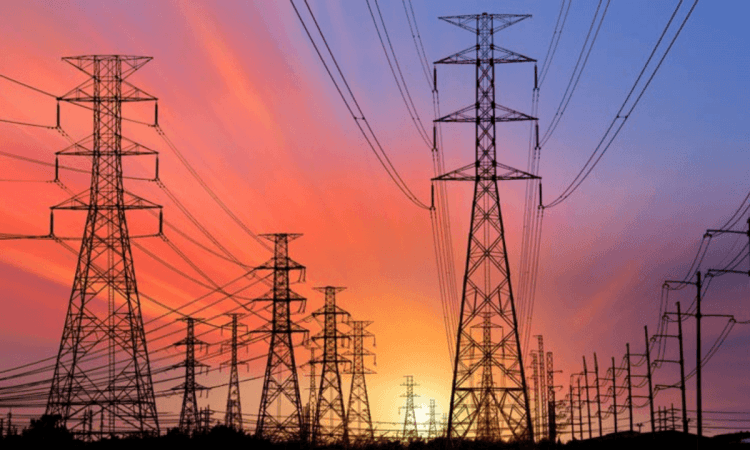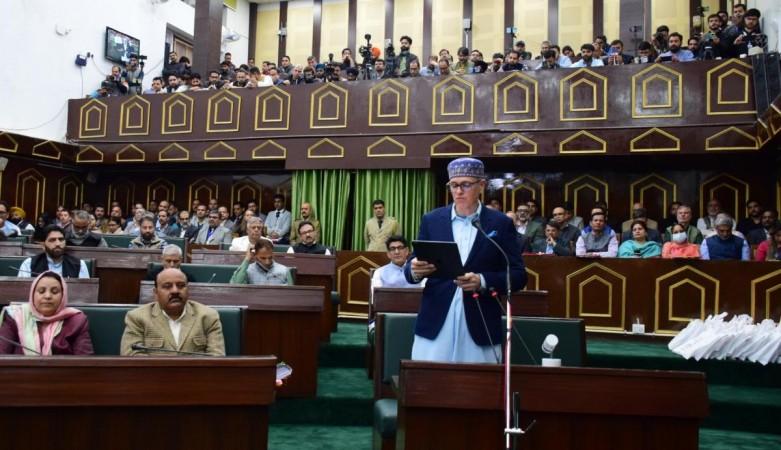
Jammu and Kashmir Chief Minister Omar Abdullah on Friday admitted that Jammu and Kashmir has a hydro potential of 20,000 megawatts (MW), but only 3,400 MW — just 17 percent of the total potential — has been harnessed so far.
The Chief Minister sought support from members of all political parties for ongoing power reforms aimed at making Jammu and Kashmir self-reliant in the energy sector.
"The power sector is a top priority for our Government, as it is the backbone of a thriving economy," the Chief Minister told the Assembly, adding, "Our vision is twofold: first, to make J&K an energy hub, achieving self-sufficiency and becoming a net power exporter by harnessing its vast hydro potential; and second, to ensure 24x7 reliable and affordable electricity for all households by 2027-28."
"To achieve this, we are implementing a well-coordinated plan covering all key aspects of the power supply chain," he said, further reiterating that Jammu and Kashmir has a hydro potential of 20,000 MW, but only 3,400 MW has been tapped so far.
The Chief Minister added that to fast-track development, the Pakal Dul, Kiru, Kwar, and Ratle hydroelectric projects will add over 3,000 MW by 2027.

"New projects like Kirthai-I, Dulhasti-II, Bursar, Sawalkote, Uri-I Stage-II, Ujh, and Kirthai-II will contribute an additional 4,500 MW within the next decade, ensuring energy self-sufficiency and making J&K a power exporter," the Chief Minister hoped.
To unlock Jammu and Kashmir's full hydropower potential, the government will introduce a new hydropower policy aimed at accelerating development, attracting private investment, and driving sustainable energy growth.
Centre sanctions Rs 5,620 crore for power reforms in J&K
The Chief Minister also highlighted that to enhance power distribution infrastructure and ensure a reliable, efficient, and financially sustainable power supply, the Government of India has sanctioned Rs 5,620 crore (Rs 2,807.70 crore for Jammu and Rs 2,834.21 crore for Kashmir) under the Revamped Distribution Sector Scheme (RDSS) for Jammu and Kashmir.
Under this scheme, J&K has submitted an ambitious investment plan worth Rs 12,922 crore, focusing on smart metering, loss reduction, and modernisation of the distribution network across rural and urban areas.
"Phase-I of the scheme, currently underway, includes the installation of 11,500 HVDS transformers, conversion of 23,000 km of LT bare conductors to AB cables, bifurcation of 2,750 km of feeders, replacement of 8,000 transformers, and installation of 14 lakh smart meters," he informed the Assembly.
He added that IT/OT system integration, Unified Billing Systems (UBS), and Enterprise Resource Programme (ERP) are also being implemented to enhance operational efficiency.
J&K purchasing power at Rs 7 per unit, recovering only Rs 2.5 per unit
The Chief Minister further pointed out one of the key challenges — the wide gap between the cost of power supply and revenue collection.
"While the average cost per unit is Rs 7, the government recovers only Rs 2.5 per unit due to systemic inefficiencies, high losses, and low tariffs," he said.

To bridge this gap, the government is implementing 100% smart metering, strengthening billing and collection mechanisms, and modernising the entire distribution network.
"These measures will improve efficiency, reduce commercial losses, and enhance revenue realization. Our goal is to reduce Aggregate Technical and Commercial (AT&C) losses from the current 41 percent to 25 percent by 2025-26, ensuring a financially viable power sector," the Chief Minister explained.
He further stated that this initiative would be integrated with the PM Suryaghar Bijli Yojana, enabling the installation of grid-connected solar systems to generate the required power and eliminate electricity bills.
"With an investment of Rs 750 crore spread over five years, this initiative will also reduce AT&C losses and promote sustainable energy," the Chief Minister added.
The Chief Minister urged Members of the Legislative Assembly to support this transformative journey toward a greener, more inclusive, and self-reliant Jammu and Kashmir.















